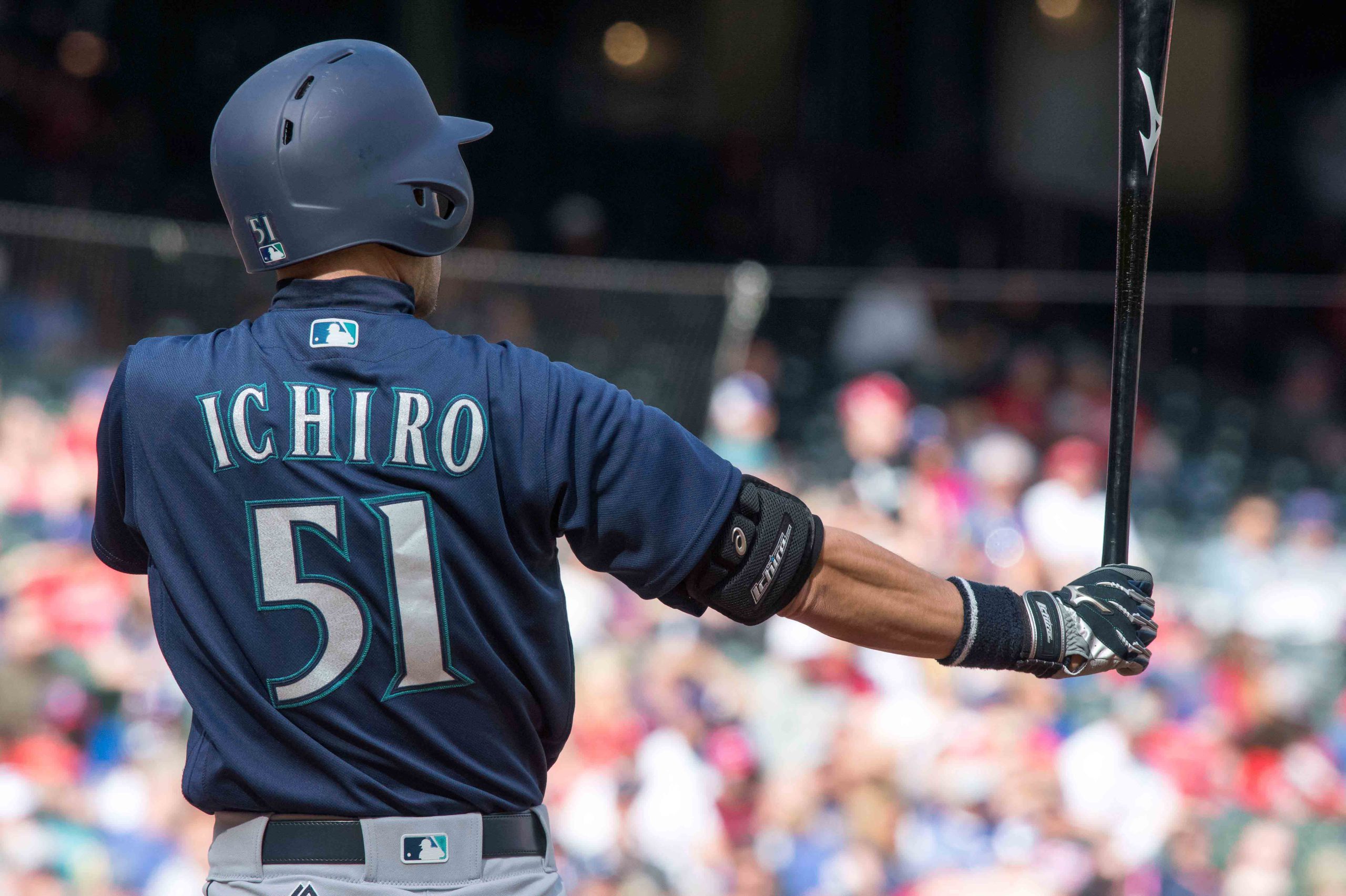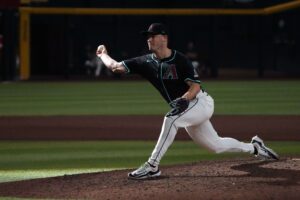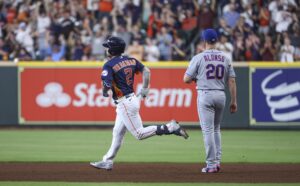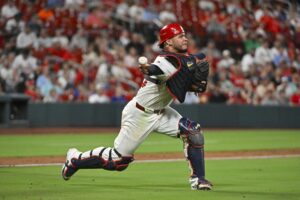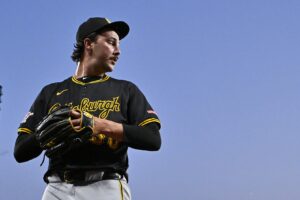Japan baseball players were nothing but an enigma to American fans for decades. The success of many players from the Land of the Rising Sun has proved that Japanese players have what it takes to excel in the majors. The country and all of its players pursue the game of baseball as perfectionists. They want to be the best, do the best, and let the rest of the world know they are the best when it comes to the game. We continue our Best Player Series of the best baseball players from Japan From Hideo Nomo to Shohei Ohtani, it’s easy to imagine what might have been had these players arrived in the majors sooner than later.
Great Japanese Baseball Players
Masanori Murakami
Kita Tsuru-gun, Japan
LHP, 1964-1965
Stats: 5-1, 3.43 ERA, 54 G, 1 GS, 9 SV, 89 1/3 IP, 100 SO, 0.985 WHIP, 1.5 WAR
Masanori Murakami is known for being the first Japanese player to play in the majors. Murakami reached the San Francisco Giants minor league system in 1964 as part of a player development agreement with NPB’s Nakai Hawks. He struck out two batters in one inning of work in his debut on September 1, 1964. His success in the U.S. led to the Giants trying to extend his career beyond the original agreement. However, Murakami returned to his original baseball club due to contractual obligations. It would be decades before another Japanese player played for an MLB team.
Hideo Nomo
Osaka, Japan
SP, 1995-2005, 2008
Stats: 123-109, 4.24 ERA, 323 G, 318 GS, 16 CG, 1,976 1/3 IP, 1,918 SO, 1.354 WHIP, 20.9 WAR
Accolades: 1995 NL Rookie of the Year, 1x All-Star, 2014 Japanese Baseball Hall of Fame Inductee
Even though Murakami was the first Japanese-born player to reach the majors, Hideo Nomo did something else in 1994. He opened the door for more players to make the transition from NPB to MLB. Nomo was in a contract dispute with the Kinetesu Buffaloes. His agent found a loophole in NBP’s rule that said a player who retired could become a free agent when they return to active status. Nomo did just that before signing with the Los Angeles Dodgers in February 1995. Nomo went on to lead the NL with 236 strikeouts with a 2.54 ERA, winning the NL Rookie of the Year Award. The following season, he threw two no-hitters, shutting out the Colorado Rockies at Coors Field where it remains the only no-no thrown there.
Hideki Matsui
Nomi, Ishikawa, Japan
LF, DH, 2003-2012
Stats: 1,253 H, 175 HR, 656 R, 760 RBI, 13 SB, .282/.360/.462, 118 OPS+, 21.2 WAR
Accolades: 2x All-Star, 2009 World Series Champion and MVP, 2018 Japanese Baseball Hall of Fame Inductee
Hideki Matsui made quite the resume for himself in the NPB. It wasn’t until 2003 that Matsui made the transition to playing MLB. In his first seven seasons with the New York Yankees, he hit 140 home runs. Following his All-Star rookie campaign, he posted a .298/.390/.522 slash line with 37 home runs in 2004. Matsui helped the club win the 2009 World Series, hitting .615 with three homers against the Philadelphia Phillies. He became the first Japaense-born player to win the World Series MVP Award as well as the first to win it as a DH.
Kenta Maeda
Tadaoka, Osaka, Japan
SP, 2016-Present
Stats: 59-41, 3.87 ERA, 169 G, 135 GS, 6 SV, 762 IP, 830 SO, 1.136 WHIP
Accolades: All-MLB Second Team
After eight seasons in Japan, Kenta Maeda made the jump to MLB. Signing an eight-year contract with the Dodgers, Maeda finished third in the NL Rookie of the Year race with a 3.48 ERA over 32 starts. Maeda was traded to the Minnesota Twins in 2020. Despite his first year in the Twin Cities being shortened due to COVID, Madea went 6-1 with a 2.70 ERA with an AL-best 0.75 WHIP. He finished second in AL Cy Young Award voting.
Koji Uehara
Neyagawa, Osaka, Japan
RP, 2009-2017
Stats: 22-26, 2.66 ERA, 436 G, 12 GS, 95 SV, 480 2/3 IP, 572 SO, 0.980 WHIP, 13.5 WAR
Accolades: 1x All-Star, 2013 ALCS MVP, 2013 World Series Champion
Koji Uehara was 34 years old when he signed with the Baltimore Orioles in 2009. His best season came in 2013 after signing with the Boston Red Sox as a free agent. In 73 games, he posted a 1.09 ERA while striking out 101 batters and walking nine. Uehara became the first pitcher in MLB history to strike out more than 100 while walking fewer than 10 batters in a season. He took over the closer role for the Red Sox where he was named the 2013 ALCS MVP. He also struck out Matt Carpenter to end the 2013 World Series.
Yu Darvish
Habikino, Osaka, Japan
SP, 2012-2014, 2016-Present
Stats: 95-75, 3.50 ERA, 242 G, 242 GS, 2 CG, 1,488 IP, 1,788 SO, 1.125 WHIP, 30.2 WAR
Yu Darvish became one of the greatest pitchers in NPB history. After signing a six-year, $60 million contract with the Texas Rangers, Darvish was up to the challenge. He posted a 112 ERA+ en route to becoming a finalist for the AL Rookie of the Year Award. In 2017, Darvish reached the 1,000-strikeout milestone, the fastest player to do so in 812 innings. Texas traded him to the Dodgers which helped them reach the World Series since 1988. His tenure in Chicago was decent, but he found his groove following the 2019 All-Star break. The following season, he finished as the NL Cy Young Award runner-up with a 2.01 ERA.
Shohei Ohtani
Ōshū, Iwate, Japan
SP, DH, 2018-Present
Stats: Batting- 530 H, 127 HR, 326 R, 342 RBI, 66 SB, .267/.354/.532, 139 OPS+, 24.8 WAR
Pitching- 28-14, 2.96 ERA, 63 G, 63 CS, 349 2/3 IP, 441 SO, 1.090M WHIP,
Accolades: 2018 AL Rookie of the Year, 2021 AL MVP, 2x All-Star, Silver Slugger
The hype around Shohei Ohtani is in full force. Ohtani received a ton of attention when he arrived in the majors which was exciting, becoming baseball’s first two-way player since Babe Ruth. Ohtani has proved doubters wrong thanks to his brilliance on the mound along with massive power at the plate. His 2021 season was a significant one as Ohtani became the first two-player with 10+ home runs, 20+ stolen bases as a hitter, 100+ strikeouts and 10+ appearances as a pitcher.
Masahiro Tanaka
Itami, Hyogo, Japan
SP, 2014-2020
78-46, 3.74 ERA, 174 G, 173 GS, 7 CG, 1,054 1/3 IP, 991 SO, 1.130 WHIP, 17.3 WAR
Accolades: 2x All-Star
Masahiro Tanaka was fantastic in seven NPB seasons with Rakuten. When the Yankees signed him to a seven-year, $155 million contract in 2014, it worked out well for both sides. Tanaka went 78-46 with a 3.74 ERA in those seven seasons while making two All-Star appearances in that time. He was also a member of Japan’s national team at the World Baseball Classic, winning a gold medal in 2009 and then a bronze in 2013.
Hisashi Iwakuma
Higashiyamato, Tokyo, Japan
SP, 2012-2017
Stats: 63-39, 3.42 ERA, 150 G, 136 GS, 1 CG, 2 SV, 883 2/3 IP, 714 SO, 1.143 WHIP
Accolades: 1x All-Star
Hisashi Iwakuma is known for his six-year tenure with the Seattle Mariners. Iwakuma was posted to the majors in 2010 but failed to come up with an agreement on a contract with the winning bidder. He did have an outstanding 2013 campaign that saw him finish third in AL Cy Young Voting, posting a 14-6 record with a 2.66 ERA and 185 strikeouts in 219 2/3 innings. On August 12, 2015, he threw a no-hitter against the Orioles.
Ichiro Suzuki
Nishikasugai-gun, Aichi Prefecture, Japan
RF, 2001-2019
Stats: 3,089 H, 117 HR, 1,420 R, 780 RBI, 509 SB, .311/.355/.402, 107 OPS+, 60.0 WAR
Accolades: 2001 AL MVP, 2001 AL Rookie of the Year, 10x All-Star, 10x Gold Glove, 3x Silver Slugger, 2x Batting Title, AS MVP
Ichiro Suzuki is the best Japanese baseball player. He marched his way to win the AL Rookie of the Year and the AL MVP Award in 2001. His debut season was also capped off with an MLB-leading 242 hits and 56 steals. It marked the first of 10 consecutive All-Star appearances along with 10 Gold Gloves while patrolling right field. He set the single-season hits record in 2004 with 262 as he accumulated 200 or more hits in each of his first 10 seasons. In August 2016, Ichiro became the 30th member of the 3,000-hit club.
Photo Credit: Jerome Miron-USA TODAY Sports
Players mentioned:
Masanori Murakami, Hideo Nomo, Hideki Matsui, Kenta Maeda, Koji Uehara, Yu Darvish, Shohei Ohtani, Masahiro Tanaka, Hisashi Iwakuma, Ichiro Suzuki


